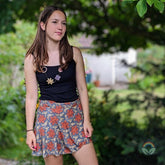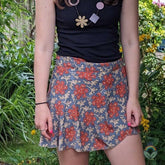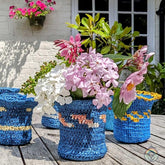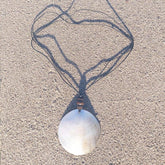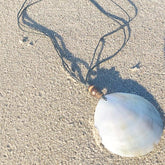 |
 |
 |
 |
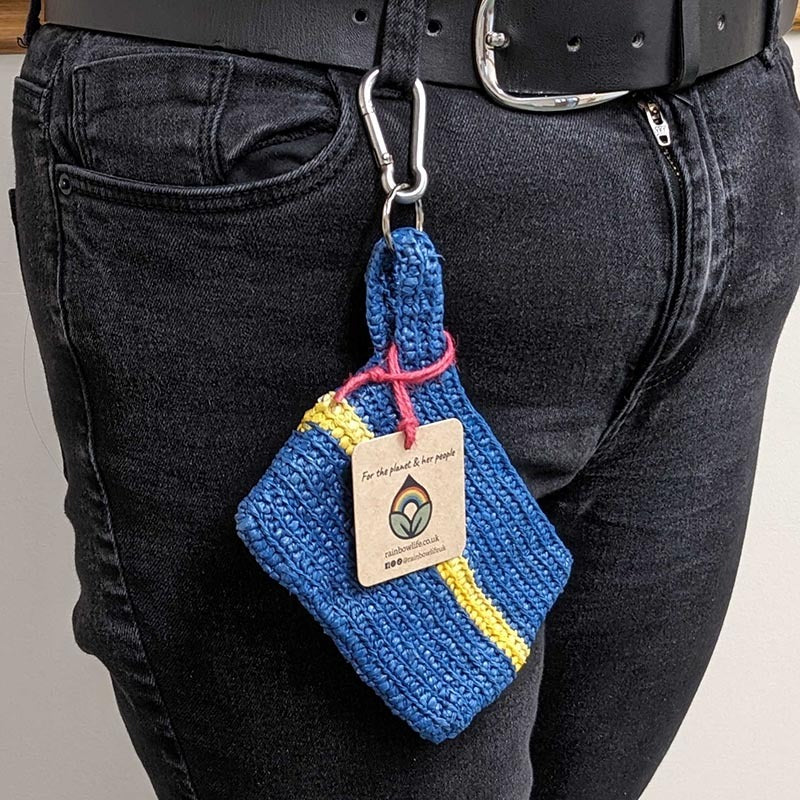




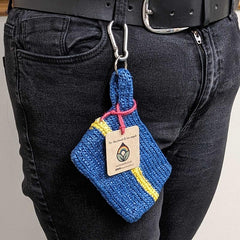
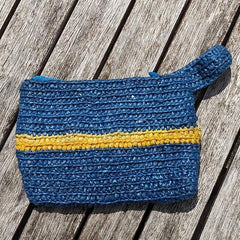
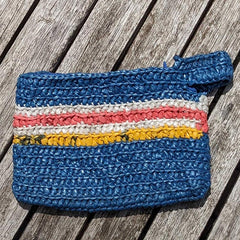
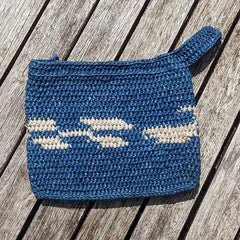

Plarn Pouch - Small
- £12.00 GBP
- £12.00 GBP
- Unit price
- per
Couldn't load pickup availability
Free Shipping
Free standard shipping on orders over £50
Description
xDescription
Introducing our eco-conscious and innovative Plarn Pouch. Crafted with creativity and care, this unique purse is crocheted entirely from repurposed waste plastic yarn, affectionately known as "plarn."
Each Plarn Pouch embodies our commitment to sustainability and reduces plastic waste, transforming it into something beautiful and useful. The plarn material lends a distinct texture and durability.
Each pouch is secured with a zip fastener and features a useful loop. The thoughtful design allows you to carry the Plarn Pouch securely and hands-free, attaching it to your belt loops or bag handles for effortless portability. Alternatively, hang it up at home or in your closet to keep your space tidy and organised. Also work well for carrying pet poop bags or at a festival for hanging in portaloo! I use mine for carrying makeup.
We think they work really nicely with our Reusable Sanitary Pads: This small size comfortably fits 2 or 3 pads.
Join us in the movement towards a greener future with the Plarn Pouch, where fashion meets purpose, and waste plastic finds new life.
Specifications
Handmade in The Gambia
Fair Trade
Made using upcycled plastic waste
Dimensions: approximately 15cm x 10cm
Integral crocheted hanging loop
Zip fastener
Story
The story of Isatou Ceesay: Climate Hero who turned waste into wealth & changed lives...
“A strong woman stands up for herself, A stronger woman stands up for everyone else.”
Isatou Ceesay has been commended alongside Emma Watson as one of THE Five female activists who are changing the world. Here is how she did it...
Isatou's community was grappling with escalating waste issues. In impoverished regions like The Gambia, regular waste collection services are non-existent, leaving no alternative but to let it accumulate in the streets. Since her early memories, Isatou observed her village residents discarding their rubbish behind their homes. In her childhood, she used to carry groceries in a basket, but plastic bags became the norm. However, these bags wreaked havoc, causing harm to animals, triggering malaria outbreaks due to mosquito breeding, and inhibiting vegetable growth in contaminated soil. To make matters worse, Isatou witnessed her friends resorting to burning plastic as a fuel source for cooking, unaware of the toxic fumes emitted, posing health risks. Despite the enormity of the waste problem, Isatou's ws determined to take action.
Isatou's sister had taught her to crochet, sparking an idea to upcycle the problematic plastic bags into valuable items. She formed a women's group, collecting and washing bags from the rubbish pile. They transformed the bags into "plarn" (plastic yarn) and skillfully crocheted small purses, each taking around eight hours to make and utilizing approximately 10 plastic bags. The women were thrilled with their creations.
The women continued with their tiny business, now also making shoulder bags and cosmetic purses from plarn. Many of them were earning money for the first time, and they were able to use it to buy food to help their families through the ‘hungry gap’ – the three months in the year when there were few crops from their farmland.
Women in her village were now able to save some money, and Isatou helped them to open their own bank accounts. With their savings, many of the women could afford to support their families. Their daughters could continue into secondary school and they could pay for medical treatment. The women helped their community, too, each contributing some of their earnings to start a community garden to grow vegetables, and to help pay for orphans to go to school.
In 2012, Isatou won a Making a World of Difference Award from the International Alliance for Women. Her social enterprise 'Women’s Initiative Gambia' has trained over 11,000 people all over her country in the dangers of plastic and the opportunities for upcycling waste
Isatou Ceesay, became known as “Queen of Recycling,” the woman who started the recycling movement called One Plastic Bag in the Gambia. The organisation works with communities across the tiny west African state to address not only the environmental impact of unregulated waste disposal, particularly plastic, but also the empowerment of women in the male dominated society. It employs hundreds of West African women and provides them with monthly income. At the time she set up the project, back in 1998, she was met with much resistance and ridiculed. Today Ceesay works to educate citizens about recycling and reducing the amount of waste that is created.
Where others saw a problem, Isatou saw an opportunity – an opportunity to create a healthier environment, but above all an opportunity to change people’s lives.
Related Products
- £12.00 GBP
- £12.00 GBP
- Unit price
- per
- £12.00 GBP
- £12.00 GBP
- Unit price
- per
- £12.00 GBP
- £12.00 GBP
- Unit price
- per
- £12.00 GBP
- £12.00 GBP
- Unit price
- per
- £12.00 GBP
- £12.00 GBP
- Unit price
- per
- £12.00 GBP
- £12.00 GBP
- Unit price
- per
- £12.00 GBP
- £12.00 GBP
- Unit price
- per
- £12.00 GBP
- £12.00 GBP
- Unit price
- per
- £12.00 GBP
- £12.00 GBP
- Unit price
- per
- £12.00 GBP
- £12.00 GBP
- Unit price
- per
Recently Viewed Products

- Choosing a selection results in a full page refresh.

